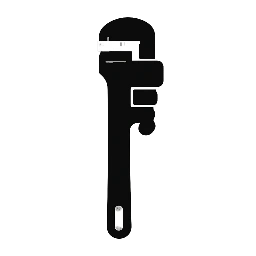When a business decides to invest in a water purification system, the upfront cost is a major consideration. Unlike a residential system, the price of a commercial water treatment solution can vary dramatically based on the scale, technology, and specific needs of the business. Understanding the key factors that influence the water purification system installation cost for commercial properties is crucial for effective budgeting and project planning.
The Major Cost Drivers for Commercial Water Purification Systems
The price tag for a commercial-grade water purification system isn’t a one-size-fits-all number. It’s determined by a combination of factors that are unique to each business and its operational demands.
1. System Type and Technology
This is arguably the most significant factor affecting the overall cost to install an industrial water filtration system. The technology you choose will directly correlate with the price.
- Reverse Osmosis (RO) Systems: These are highly effective for removing a wide range of dissolved solids, minerals, and contaminants. Commercial RO systems are often a significant investment, with costs ranging from a few thousand to tens of thousands of dollars, depending on the required flow rate and water quality targets.
- Carbon Filtration: Often used as a pre-treatment step or for specific contaminant removal (like chlorine and organic compounds), carbon filters are generally more affordable but may not be suitable for comprehensive purification on their own.
- UV Sterilization: This technology uses ultraviolet light to kill bacteria, viruses, and other microorganisms. It’s an excellent solution for disinfection but does not remove physical or chemical contaminants. The cost is typically lower than a full-scale RO system.
- Water Softeners: While not a purification system, a commercial water softener is a vital component for businesses dealing with hard water. The cost depends on the grain capacity and can be a considerable part of a comprehensive water treatment setup.
2. System Capacity and Flow Rate
The volume of water your business needs to purify per day (often measured in gallons per minute, or GPM) is a primary cost driver. A small office might only need a system with a low flow rate for drinking water and ice machines, whereas a manufacturing plant or a large restaurant will require a high-capacity system to support its processes. Higher flow rates necessitate larger components, more robust materials, and more complex engineering, all of which contribute to a higher water purification system installation cost for commercial properties.
3. Water Quality of the Source
The quality of the incoming water supply (influent) has a direct impact on the required treatment. If the source water contains high levels of contaminants, sediment, or hardness, more pre-filtration stages will be necessary to protect the main purification system. This additional equipment and plumbing will add to the total commercial water treatment equipment cost. A detailed water analysis is the first and most critical step in determining the correct system and budget.
4. Installation Complexity and Labor
The installation process itself can be a major variable in the final cost. Factors that increase labor costs include:
- Location: Is the installation site easily accessible? Are there space constraints?
- Plumbing Modifications: Does the system require new plumbing lines, drains, or electrical connections? The complexity of this work will significantly influence the total project price.
- Permits and Regulations: Some commercial installations may require specific permits or need to adhere to local or state regulations, which can add to the total cost and project timeline.
5. Additional Costs to Budget For
Beyond the initial purchase and installation, there are other financial considerations that business owners must plan for.
- Maintenance: All water purification systems require routine maintenance, including filter and membrane replacement, to ensure optimal performance. These ongoing expenses should be factored into your operational budget.
- Operating Costs: Some systems, like RO, have a greater energy consumption and water waste than others. Understanding these operational expenses is key to a complete financial picture.
- Service Contracts: Many businesses opt for service contracts with their water treatment provider. While this adds a recurring fee, it provides peace of mind that maintenance will be handled by experts, helping to extend the lifespan of the system and avoid costly downtime.
Estimating Your Investment
Due to the many variables, it’s impossible to give a single price for a water purification system installation cost for commercial properties. However, for a small to medium-sized business, a simple commercial water treatment system could range from a few thousand dollars up to $20,000, including installation. For large-scale industrial applications, the price can easily run into the hundreds of thousands of dollars.
The best way to get an accurate estimate is to partner with a reputable water treatment company. They can conduct a thorough assessment of your needs, analyze your water quality, and provide a detailed quote that covers all equipment, labor, and potential long-term costs. Investing in a professional consultation early on will save you time and money in the long run.
Ultimately, the cost of a commercial water purification system is not just an expense—it’s an investment in your business’s efficiency, product quality, and long-term success.


Leave a Reply